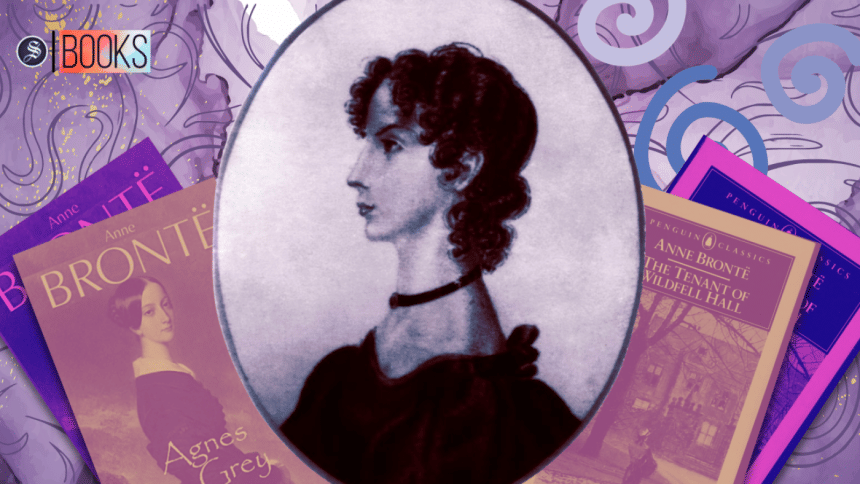Anne Brontë: The daring sister in the shadows

In a 2011 episode of Family Guy, the youngest of the Brontë sisters, Anne Brontë, was featured as the "third Brontë sister"—as someone who was outshined by her siblings, Charlotte and Emily. A cultural mythology surrounding Anne Brontë has formed in popular culture; while Charlotte and Emily's masterpieces overshadow the domain of the Victorian classics, Anne's stellar works remain in the creeping edges. She is the 'underrated Brontë sister', a gem hidden behind her sister's long-cast shadows. January 17 marks the 204th birth anniversary of Anne Brontë, and it is high time the youngest Brontë sister got the limelight she deserves.
Anne Brontë wrote two novels, Agnes Grey (1847) and The Tenant of Wildfell Hall (1848) along with some poems, exploring several incisive commentaries on marriage, alcoholism, or male volatility, and violence. For a Victorian writer, she was incredibly progressive and even explored themes of separation, divorce, and women's emancipation. According to Lucasta Miller in The Brontë Myth (2001), the youngest Brontë "for most of her posthumous life was regarded as very much the least interesting sister". While Charlotte and Emily's creations are masterpieces in themselves, Anne Brontë's exploration of tricky and controversial subject matters are nothing short of deserving the praise of the masses.
Anne's first novel, Agnes Grey (1847) tells the story of a governess as she works within families of the English gentry. It is largely inspired from her own work as a governess of five years. The choice of her central character in this novel allows Anne to deal with issues of oppression, abuse of women and governesses, isolation, and ideas of empathy. But what it really gears up to be is a silent preparation for her next piece of literature—a masterpiece by my account.
The Tenant of Wildfell Hall (1848) is one of the most underrated literary pieces of the Victorian times. This novel follows the disintegration of the marriage of the protagonist, Helen Huntington, the mysterious eponymous tenant. In order to protect her son from the influence of her dissolute and alcoholic husband, Helen defies conventions and leaves her husband to earn her own living as an artist. Whilst in hiding at Wildfell Hall, she encounters Gilbert Markham, who falls in love with her.
The Brontë sisters are known for their strong female leads, and this book is no exception. But it is also much more than just that. Upon its first publication in 1848, Anne's novel was criticised, most by Charlotte Brontë, for being coarse and brutal. But The Tenant of Wildfell Hall challenged the social conventions of the early 19th century with a strong defence of women's rights in the face of psychological abuse from their husbands. It showed a female lead unafraid to divorce herself from an abusive partner, and make a life for herself through earning her own bread. The protagonist is one of the best proto-feminist characters in my opinion; upon reading the book, I found it refreshing to have a widow at the centre of the story, and one shrouded in scandal too. It made a shift from the typical respectable woman of Victorian literature.
Anne was a realistic novelist—and one who was very much ahead of her time. She was a fiery feminist, and dismissive of creating any Gothic atmosphere. In fact, the "soft nonsense" she was so scornful of in her Preface to The Tenant of Wildfell Hall, was a veiled reference to Emily Brontë's, Wuthering Heights. Anne had a burning desire to tell the truth, and strip bare the essential imbalance of power between men and women in society. Specifically, she wished to reveal this dichotomy within the suffocating hierarchical structure of Victorian marriage. Anne held a mirror up to society's failings, and was strictly unafraid to venture onto the unexplored.
As an admirer of the Brontë sisters, I, too, strayed away from the ground-breaking work of Anne initially but what I found in her works later was truly breathtaking: a daring visionary who was unafraid to highlight the darkness veiled under the shadows. So, here's wishing Anne a warm birthday greeting, and also politely nudging the readers to venture into Anne Brontë's wonderful oeuvre of works.
Tasnim Naz is an academician of English Literature in Bangladesh University of Professionals. Her research interests are Feminism, Diasporic Study and Postcolonial Studies. Reach her at [email protected].

 For all latest news, follow The Daily Star's Google News channel.
For all latest news, follow The Daily Star's Google News channel. 








Comments